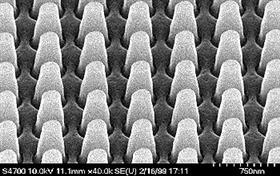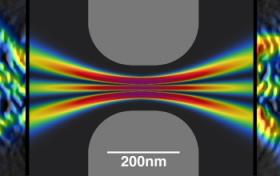Nanotechnology & Society
Unlike the transistor or steam engine, nanotechnology is not a single thing. Indeed, it is more accurate to speak of it as “nanotechnologies.” As its prefix suggests – nano is from the Greek word for “dwarf” – nanotechnologies involve the world of the very small. A nanometer is one-billionth of a meter. To put that in perspective, a sheet of paper is about 100,000 nanometers thick. Nanotechnologies are concerned with the development of new technologies at the size scale of about 1 to 100 nanometers.
At the nanoscale, the physical, chemical, and biological properties of materials differ from those of individual atoms or bulk matter. The nanoscale is an intermediate regime where classical physical laws overlap with quantum effects. Nanotechnologies involve creating structures and devices that have novel properties, applications, and behavior because of their intermediate size. Nanotechnologies are based on the ability to precisely control and manipulate these materials and devices on the atomic or near-atomic scale.
Nanotechnologies and Society
Nanotechnologies may contribute to major changes to the US and global economy, workforce, and way of living. Applications range from new electronic devices and the means to fabricate them to materials for health and environmental uses. Some nanotech products are already on the market while others are decades away from realization outside the lab. These new nanotechnologies pose many uncertainties for society. The risks that may accompany their use are largely unknown and their potential social and economic effects raise questions regarding equity and fairness, many of which are difficult to anticipate.
The actual use of nanotechnologies promises to surprise us. When scientists invented the transistor in 1947, few people had any idea how far-ranging its applications would be. And that was a single technology. Because nanotechnologies offer such a wide range of possible applications, understanding their development and societal impacts will be far more complex. History tells us that new technologies do not enter society on their own. Ultimately, people and societies make technologies and decide how they are used. The Center for Nanotechnology in Society at the University of California, Santa Barbara helps policy makers, scientists and engineers, community organizations, and the general public understand the opportunities and the risks that the nano-enterprise affords












